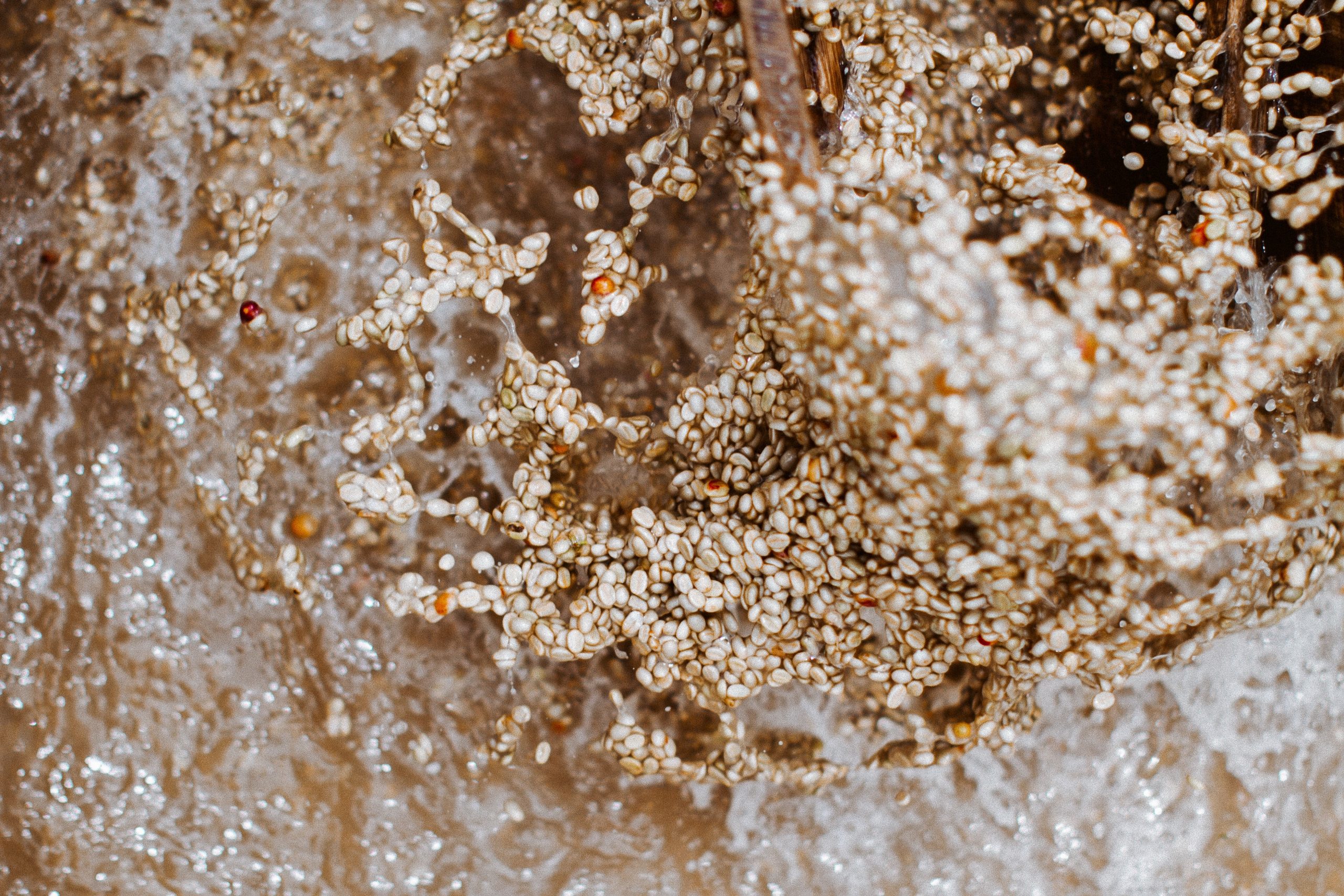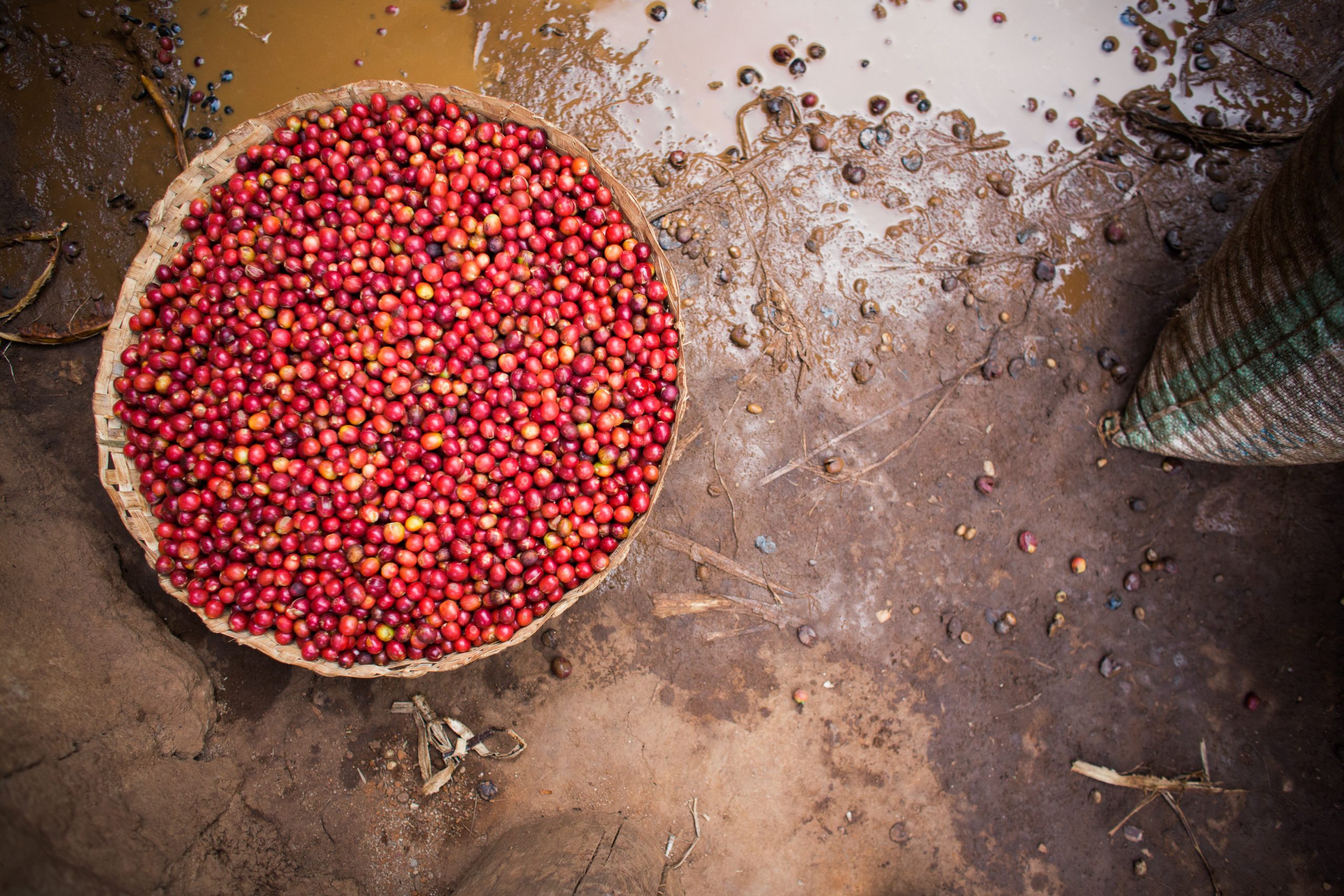Burundi Mutana 1 Fully Washed GrainPro
Bags 0
Warehouses Oakland
Out of stock
About this coffee
Grower
858 farmers of Mutana hill organized around the Heza Coffee Washing Station
Altitude
2100 - 2200 masl
Variety
Local bourbon cultivars
Soil
Volcanic loam
Region
Kayanza Province, Burundi
Process
Fully washed and dried on raised beds
Harvest
April - July
Certification
Conventional
Coffee Background
Heza Coffee Washing Station, the second processing site built by the Long Miles Coffee Project (LMCP), is stadium-like in its height and steepness. Heza pumps water from a nearby natural spring to the very top of the station and washed processing cascades from there down to the bottom, where cleaned and graded parchment is then tagged and couriered to various plots on the hillside for organized drying.
LMCP is a microlot business. All of their infrastructure, systems, employees, and marketing are designed to support large numbers of unique and fully traceable coffees. Doing so in Burundi is especially difficult because farms produce very little cherry and are scattered across broad landscapes. They are also numerous, requiring the successful coordination of hundreds of farmers and processing staff just to produce a single differentiated lot. Importantly, such an effort requires sustainable prices to support, so the coffee itself needs to be as delicious as possible. Fortunately, LMCP excels at identifying landscapes and communities with potential, and investing heavily in farmer livelihood. With this formula they are easily producing many of the country’s best coffees each year.
It is common for processors in Burundi to use the consistently steep and hilly landscape as a tool for organization, often buying cherry from one single hill at a time, or using the term “hill” to refer to a micro-geography. Mutana, a widespread community consisting of many hills and hundreds of farmers, is one of the contributing “hills” to Heza.
Unlike most processors, LMCP separates every hill and delivery day until processing is complete and a quality assessment has been made, at which point certain day lots may be combined. Farmers across Mutana hill are registered partners with LMCP and receive not only highly competitive prices and post-harvest premiums for their cherry, but also farm-level trainings covering canopy and fertilizer development, pruning, harvesting for quality and integrated pest management. These trainings are all provided by local “Coffee Scouts”, LMCP’s team of community-based trainers who serve as local instructors. The education and high prices combined have helped many of LMCP’s farmers renew their faith in coffee as a long-term livelihood. Long Miles works with a total of 5,500 farmers between their 3 washing stations, servicing 11 different hills.
Cherry from Mutana farmers is floated and hand-sorted for maximum ripeness upon delivery to Heza. Once the cherry is depulped the parchment undergoes a double fermentation process, including a 12-hour dry fermentation, followed by a 24-hour wet fermentation, during which the parchment is submerged entirely in spring water. After the set of fermentations is complete the parchment is “footed”, or agitated by dancing barefoot in the parchment to help the decomposed mucilage completely detach. Once the agitation is complete, the parchment is rinsed in fresh water, graded by density, and left to soak another 4-6 hours in a final rinse tank. Post soak, the parchment is moved to shaded drying beds to allow residual surface water to evaporate, during which it is hand-sorted for any insect damage and visual imperfections. Parchment is then moved again to the larger beds with no shade to dry completely in the sun, a process that typically takes 16-20 days.




